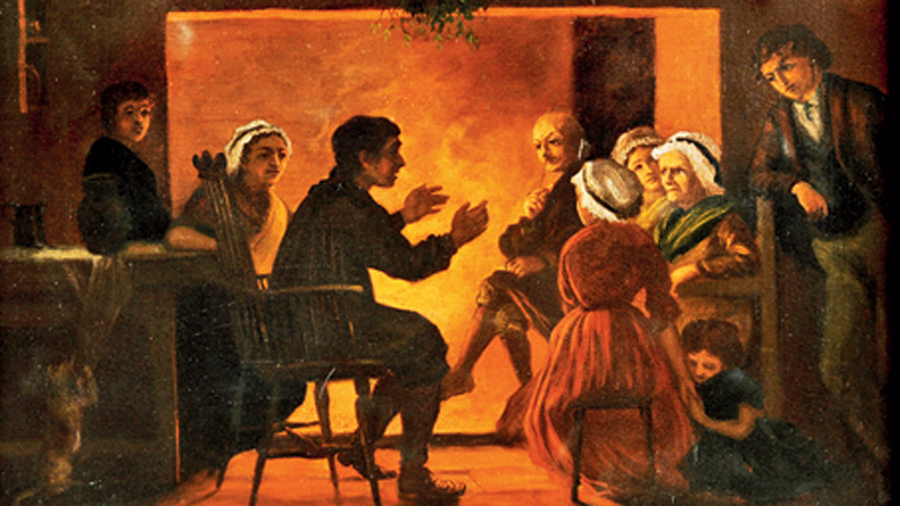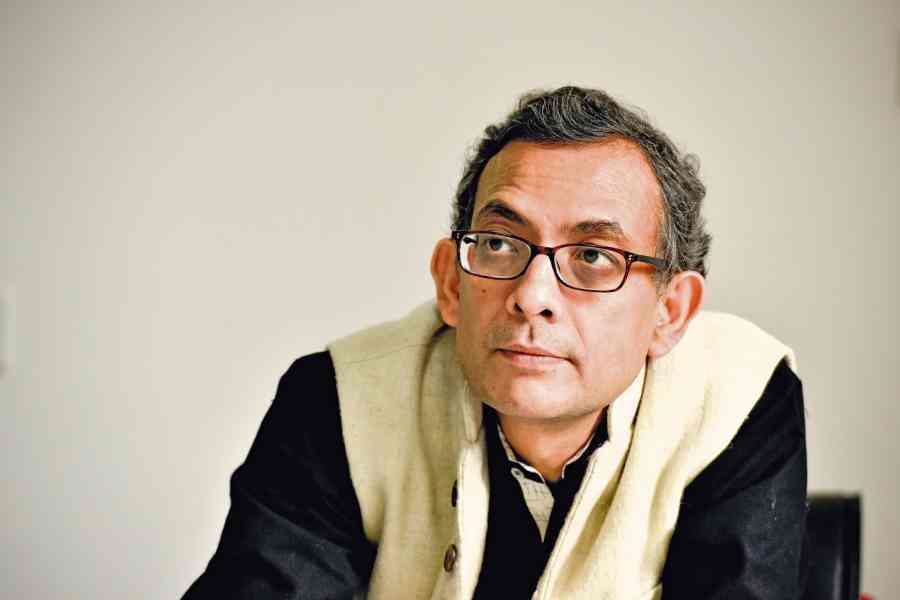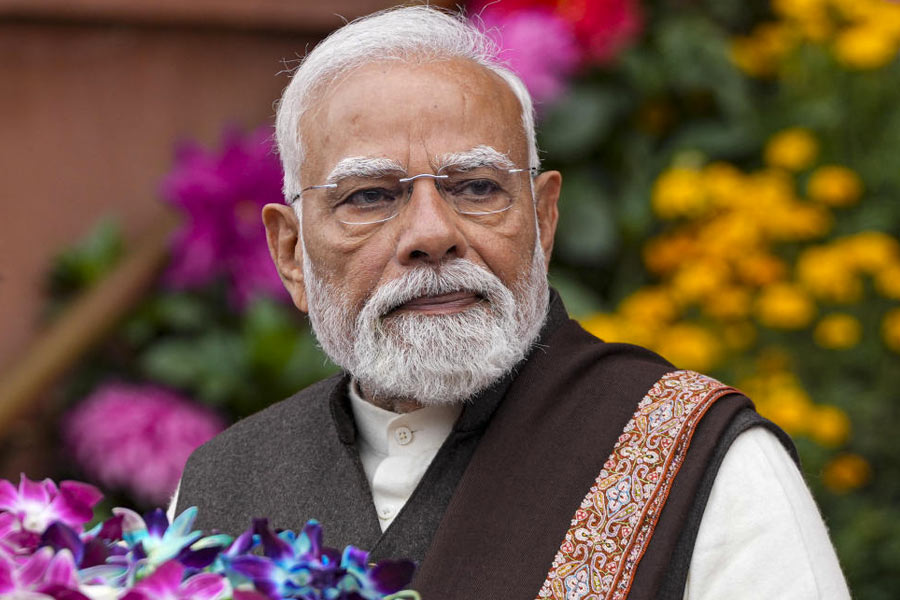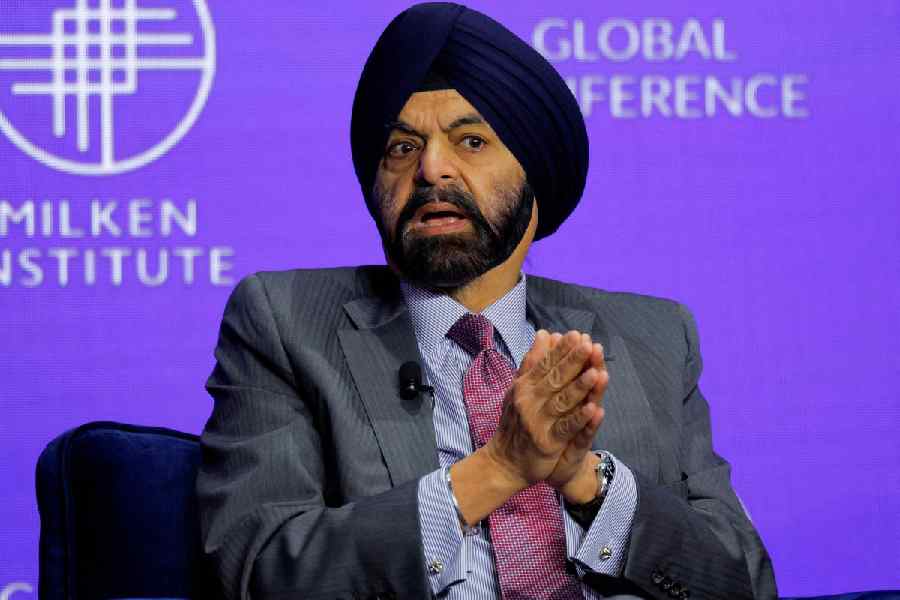We, human beings, are story-telling animals. The ability to create narratives to help make sense of who we are, where we come from, where we may (or may not) be going, what we need to do to get there, how best we may do the things that need to be done (and avoid those that we ought not to do) and so on and so forth, is — as far as we know — not present in any other species of animal. Who we are is shaped by, and crucially depends on, the stories we hear, discuss, tell, and retell. In his 1936 essay, “The Storyteller: reflections on the works of Nicolai Leskov”, the noted critic, Walter Benjamin (1892-1940), had made a distinction between the story and the novel. The former he saw as fundamentally social, leading to thought and discussion; the latter he characterized as being essentially solitary, and far too preoccupied with information, rather than with what he characterized as “counsel” — a kind of practical social wisdom that stories can impart, but novels cannot. In this, Benjamin was echoing the words of his contemporary, Thomas Stearns Eliot (1888-1965), who had lamented, “Where is the wisdom we have lost in knowledge? Where is the knowledge we have lost in information?” in his 1934 poem, “Choruses from “The Rock””. “In every case,” asserts Benjamin, “the storyteller is a man who has counsel for his readers. But if today “having counsel” is beginning to have an old-fashioned ring, this is because the communicability of experience is decreasing. In consequence we have no counsel either for ourselves or for others. After all, counsel is less an answer to a question than a proposal concerning the continuation of a story which is just unfolding. To seek this counsel one would first have to be able to tell the story. (Quite apart from the fact that a man is receptive to counsel only to the extent that he allows his situation to speak.) Counsel woven into the fabric of real life is wisdom.” Although the novel, too, takes its raw material from ‘real life’, its essential quality is solitude, and isolation. “The novelist has isolated himself. The birthplace of the novel is the solitary individual, who is no longer able to express himself by giving examples of his most important concerns, is himself uncounselled, and cannot counsel others.” For Benjamin, “If the art of storytelling has become rare, the dissemination of information has had a decisive share in this state of affairs… Every morning brings us the news of the globe, and yet we are poor in noteworthy stories. This is because no event any longer comes to us without already being shot through with explanation. In other words, by now almost nothing that happens benefits storytelling; almost everything benefits information.”
The problem with information, as both Eliot and Benjamin realized, is that it is useful as long as it is new; stories, on the other hand, remain valid for as long as they are told and retold. That is the source of their power; and that is also why our most successful storytellers are those who are able to create narratives that are concerned less with facts and more with ‘counsel’ — even if such counsel is often at odds with the facts as we know them. The mob which stormed the US Capitol on January 6 was least concerned with whether the story that enraged and inspired them to act (‘this election was stolen’) was based on accurate information, just as those who claim an eternal and unending conflict between Hindus and Muslims to justify their demands for a Hindu rashtra in our own country could not be bothered with a shred of evidence to the contrary. In both cases, the actors are guided by their own retelling of the stories they have been fed and encouraged to make their own — the ‘wisdom’ and ‘counsel’ that Benjamin wrote of so eloquently having been turned into the inspiration for their own acts of violence against those whom their stories classify as villains (opponents of Donald Trump, Muslims). They are merely carrying out, in deeds as well as words, the continuation of stories that are still unfolding.
In Benjamin’s vision, the storyteller belongs to “the ranks of the teachers and sages. He has counsel — not for a few situations, as the proverb does, but for many, like the sage... This is the basis of the incomparable aura about the storyteller... The storyteller is the figure in which the righteous man encounters himself.” Yet he must have been aware that the power of the storyteller, and of the story, could be used for radically different, unrighteous purposes: for dividing instead of uniting or reconciling, for demonizing those who were different from those being told the stories, for encouraging the story’s listeners to carry forward the tale themselves — often at great cost to others unlike them. As a Jew who had been forced to flee a Germany where the new, divisive, vicious stories propagated by the National Socialists had taken firm hold among the (non-Jewish) populace, it seems unlikely to have been otherwise. When we take this into account, it becomes possible to read “The Storyteller” as a melancholy epitaph for a time when human beings lived richly social lives, and the storyteller was the repository of a lived, embodied wisdom that could, at least in theory, benefit everyone by bringing, in Benjamin’s evocative words, “soul, eye, and hand… into connection”. When thus contextualized, his essay can also be read as a cautionary tale of how isolated modern human beings, lacking authentic social selves, and bereft of real social interaction, can all too easily fall prey to the phantasmagoric stories spun by demagogues and rabble-rousers.
We live in a time when, on the one hand, human connection has become increasingly attenuated (a process intensified and accelerated by the ongoing pandemic), and, on the other, terabytes of information wash over us, through electronic and other means, on an hourly basis. Seeking to make sense of ourselves, and the world we live in, we take refuge in, and seek comfort from, stories that claim to make sense of our increasingly confused and chaotic existence. The power of the story has never been as strong, or as seductive, as now. Sadly, though perhaps inevitably, those peddling the most attractive stories are less intent on giving us counsel for leading richer, fuller, more connected lives, and more concerned with holding on to power and fulfilling their own narrow political agendas. To combat this, perhaps the only way lies in reclaiming our stories from those who would use, abuse, and manipulate us for their own selfish ends, even as they claim to speak for all (or a majority) of us. The women of Shaheen Bagh, and the farmers still encamped in protest in our nation’s capital — to take but two examples — have sown the seeds of the kind of new, humane, social and collective stories that we need at this hour. It is for us to retell their tales, inaugurate discussion, reopen dialogue, and continue a story that is still unfolding if we want to fulfil the true task of the storyteller.
The author is professor of Comparative Literature, Jadavpur University, and has been working as a volunteer for a rural development NGO for the last 30 years










